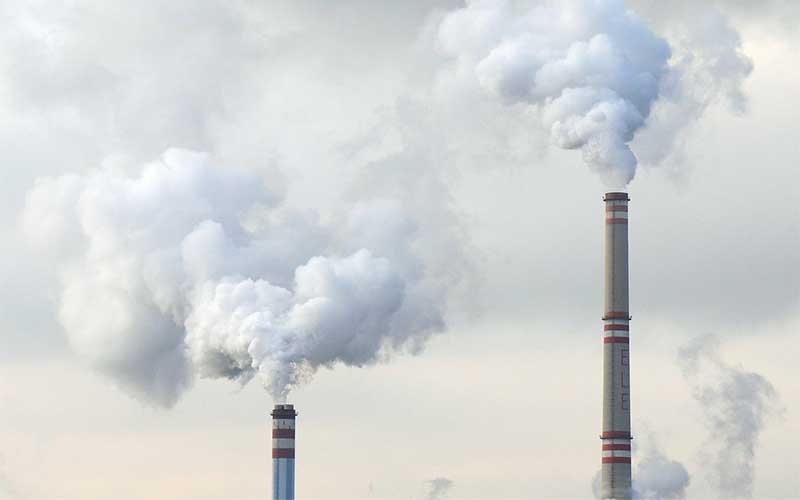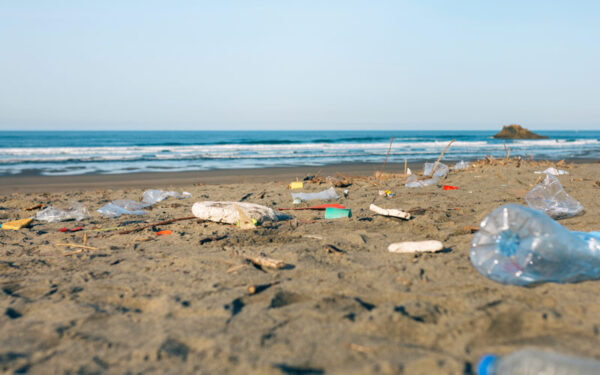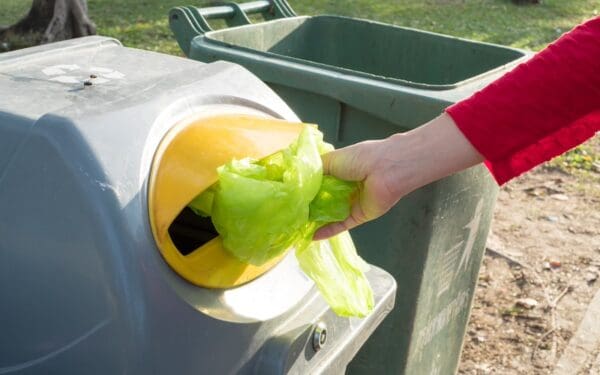
Providence takes critical step in creating a zero-waste future and protecting its communities by banning trash incineration. Photo: Pixabay.
Residents of South Providence and Washington Park are no strangers to the inequities they face living in a heavily industrialized neighborhood. In fact, they suffer from some of the highest asthma rates and blood lead levels in Rhode Island.
Recently, these environmental justice communities have had their fair share of fights against private businesses looking to bring even more polluting facilities to the Port of Providence area. One of those fights resulted in city and state leaders standing with residents and business owners to stop a dangerous waste transfer station, or garbage depot, from being built. That effort opened the eyes of many city officials to the harms that waste disposal facilities cause.
Wanting to stop these neighborhoods from being saddled with other such facilities in the future, the City of Providence just acted to ban dangerous high-heat waste incinerators altogether. The ban is not only a victory for these neighborhoods but also provides a model that other communities throughout the region can follow.
No One Should Be Forced to Live in the Shadow of a Waste Disposal Facility
The Providence ban – in the form of an amendment to the city’s zoning ordinance – was first proposed by City Councilor Pedro Espinal in August. A resident of South Providence, Espinal was heavily involved in the fight to stop the garbage depot because he knew what was at stake. “If allowed, this transfer station would have moved 2,500 to 3,000 tons of waste per day and would have used over 200 diesel-powered trucks to transport the waste,” said Espinal.
With Rhode Island’s only landfill expected to reach capacity as soon as 2034, discussions have been underway at all levels of Rhode Island government about how to deal with the state’s “trash problem.” Some officials see high-heat incineration as the answer, even as others argue (rightly) that these facilities pose serious health risks to the people forced to live in their shadow.
Councilor Espinal knows firsthand the injustices our trash creates – especially for the environmental justice communities where toxic waste facilities are usually built. As City Councilor, he asserts that, “The health of my neighbors will always be paramount. I want to see business and growth in my community, but not at the expense of the health of my residents.”
Despite his community’s momentous win against one proposed waste facility, Councilor Espinal recognized that it wouldn’t be enough to protect his neighbors for good. It was time for the city to take further action.
Providence Bans all Trash Incineration in City Limits
While Rhode Island has a policy against waste incineration in the state, it doesn’t necessarily ban the burning of trash outright. What’s more, the policy doesn’t account for “new” types of trash incineration like gasification, pyrolysis, and others (these technologies aren’t really new, they’re just different forms of burning trash – that have been rebranded by industry to make them sound new and safer).
Councilor Espinal’s amendment to the City of Providence Zoning Ordinance changes that. Now, all waste incineration is prohibited in Providence. That means private businesses cannot use any waste disposal treatments at temperatures above 400 degrees Fahrenheit.
What’s more, the amendment limits the building of other waste processing facilities, such as a waste transfer station. Prior to Councilor Espinal’s amendment, private companies could run these facilities on behalf of a state or city agency. But now, they’ll only be allowed in Providence if they are run by a state or city agency.
According to Councilor Espinal, the City was “able to pass this important piece of legislation because the community rallied together and said, ‘enough is enough.’”
An Example for New England and Beyond to Follow
Providence’s ban on high-heat waste treatment is novel. Other communities across the U.S. have successfully used state and local laws to prevent incineration or fight back against existing incinerators over the years. New York, for example, passed a law in 2019 banning facilities in the Finger Lakes region that generate electricity from “the combustion, gasification or pyrolysis of solid waste or from fuel from solid waste.”
But no other U.S. city or town has outright banned all forms of trash incineration before – and with the added measure of a temperature limit. That temperature limit will keep out incineration, gasification, pyrolysis, plasma arc, chemical recycling, and any other supposedly “new” technology that the waste industry cooks up to burn trash.
Collective Action Can Ignite Real Change
Burning trash will never solve our waste problem; in fact, it just creates a whole other set of challenges, especially for the people forced to live with a dangerous, polluting facility in their neighborhood. Providence’s outright ban on high-heat waste facilities may be the first, but we know it will not be the last. Just as forward-looking communities (and now several states) across New England have banned single-use plastic, we expect more cities and towns will follow Providence’s lead and say no to burning our trash – another critical step in creating our zero-waste future and protecting our communities.
But these actions can’t be taken without legislators and residents working together. As in the words of Councilor Espinal, “without our collective voices, we would not have been successful in pushing Providence towards a greener and healthier future.”




